December 12, 2010
The D Man's Top Twenty Albums of 2010
1. The Suburbs / Arcade Fire
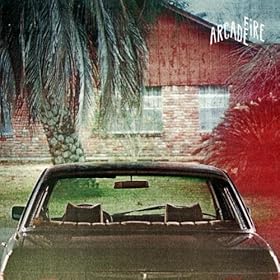
The Suburbs is about bedrooms, backyards, driveways, and parking lots; the places where dreams materialize in the heart of youth. But then communities dissolve, relationships disintegrate, and dreams dissipate, leaving disenfranchised kids roaming empty streets and cities, seeking solace, looking for home.
Arcade Fire's third album is a thrilling triumph that embraces the possibility of light in the throes of darkness, of love in the final acts of modern man. Less heavyhanded than Neon Bible, the album still possesses an underlying sense of despair, but it never detracts from the invitation to escape, and never weighs down the propulsive guitar-rock that carries much of the album. Indeed, the music's white-noise nostalgia is continuously interrupted by lyrical hooks, anthemic choruses, and bursts of clarity, in what may be seen as the band's first rock album, with their vibrant instrumental flourishes still in tow.
This is the Canadian band's The Joshua Tree--epic, righteous, guitar-driven, fervent--complete with massive anthems and soul-wrenching examinations. Unlike that album's wide-lens view of America and our inner soul, however, The Suburbs plays out more like Darkness at the Edge of Town, shrouded in a relentless future, uncertain of whether an appeal to our collective greatness will be fruitful.
The Suburbs' seamless majesty--both sonic and thematic--is an impressive achievement made possible by the band's considerable talents and willingness to reach for greatness. Will Butler referred to Arcade Fire as "a Moby-Dick kind of band." This is an apt description, as the collective's ambition goes for epic and achieves that kind of feeling, no matter the flaws. Rather than capturing merely small or limited moments (which it does to great effect), The Suburbs is a soaring depiction of visions past and future: childhood dreams give way as the adult world emerges, and the album's end-of-days philosophical exploration sears into the pysche. Over the arc of sixteen tracks, the album moves through the beauty, strangeness, and bittersweetness of youth, and often views those moments through the lens of an adult grappling with current crisis. This is not a short story with an easy ending.
The Suburbs is also that rare artistic creature: an accessible and aesthetic achievement that entered into the mainstream. Like Grizzly Bear's Veckatimest from 2009, The Suburbs reached #1 on the Billboard charts, if but for a brief stay, which is an impressive feat for an album that is such a heavy, conceptual thing.
But maybe that should not come as a surprise since The Suburbs' grand statement, however conflicted, seems so universal. After all, we are, in the end, talking about kids. Seeking fulfillment of the promises of youth. Seeking for connection long since abandoned: brothers, sisters, friends, hopes, dreams. Seeking for innocence, purity, goodness. Kids just like you and me.
2. Teen Dream / Beach House
![Teen Dream [CD + DVD]](http://ecx.images-amazon.com/images/I/41oEUD8dfDL._SL500_AA300_.jpg)
3. Age of Adz / Sufjan Stevens
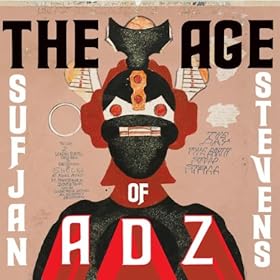
The most (re)inventive album of the year. To summarize: over the last decade, Sufjan has (1) recorded his eclectic debut (A Sun Came), (2) composed an electronic album devoted to the animals of the Chinese Zodiac (Year of the Rabbit), (3) regenerated the immaculate beauty of his home state (Michigan), (4) recorded a quiet folk album of dialogic devotion (Seven Swans), (5) orchestrated the greatest American album of the last ten years (Illinois), (6) released the magical detritus from the Illinois sessions (The Avalanche), (7) shared several years of private Christmas recordings (Songs for Christmas), (8) honored the Brooklyn-Queens Expressway in a symphonic and cinematic tribute (The BQE), and (9) collaborated with countless artists and musical friends.
Despite his substantial output, Sufjan did not release a proper album for more than five years. We waited and worried. He surfaced last year and said he had lost faith in the album, even faith in the song. He was obviously wrestling with the weight of impressive achievements and enormous expectations. The D Man pleaded with him to remain, to reconsider, to recuperate and reinvent, if necessary. We needed the album, we needed the song. Especially from him.
Enter 2010. Sufjan released the lengthy All Delighted EP, and right on its heels, the fascinating album Age of Adz. While the All Delighted EP consisted of rococo pleasures consistent with Sufjan's previous efforts, Age of Adz was a departure in many ways, certainly from the soaring symphonic folk of the much-beloved Illinois. Age of Adz was an intergalactic exploration of the Self, an electronic and orchestral attempt to find a heartbeat again. And, gratefully, it did. The album succeeded on cosmic levels, and it instantly became another iteration of Sufjan's creative and cognitive abilities.
Age of Adz, in Sufjan's words, is "really obsessed with sensation and has a hysterical melodrama to it." This is readily apparent when listening to the record (easily the best headphone experience of the year), and especially after seeing the new songs performed live. The D Man previously shared his feelings from that indelible concert, and now offers up the Sufjan live experience as the ultimate expression of the album.
4. High Violet / The National
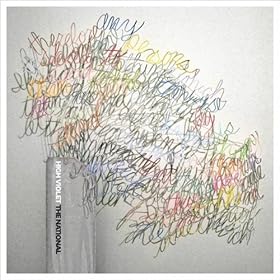
It takes an ocean not to break. The National's High Violet comes in supple waves. Of sophisticated post-rock. Of anthemic breakdowns. Of mega-chorus brilliance. The album's craftsmanship is mature and assured, while the lyrics bely any sense of confidence in the wake of relationships, families, and communities on the edge. And while the tone is somewhat ominous, High Violet's energy somehow feels brighter, more magnanimous than previous efforts.
In addition to the dark-hued grandeur, the songs also possesses subtle charms that, like earlier releases, continue to take shape and grow with each listen. As the songs coalesce and reveal deeply-felt, personal projections, one gets the distinct impression that The National may be the best band playing today. Indeed, the album lives as a dense collection of brilliant songs. And there may not be a better three-song run (this year) than the album's fifth, sixth, and seventh tracks, the brooding backbone of High Violet's world-weary vibe.
"Afraid of Everyone," with emblematic American metaphors, describes a family man's paralyzing fears, and as the song reaches a foreboding crescendo ("your voice is swallowing my soul, soul, soul"), one is left wondering whether it is a call to battle or a plea for retreat:
I'll defend my family with my orange umbrella
I'm afraid of everyone, I'm afraid of everyone
With my shiny new star
Spangled tennis shoes on
I'm afraid of everyone, I'm afraid of everyone
With my kid on my shoulders I'll try
Not to hurt anybody I like
But I don't have the drugs to sort
I don't have the drugs to sort it out.
On "Bloodbuzz Ohio," Matt Berninger's narrow baritone takes flight with (a swarm of bees) and an exquisite rock'n'roll arrangement that lesser bands scarce can comprehend. An ode to home and distance (most of the band originally hails from Ohio), the song's centerpiece is a kind of physical, spoken-out-loud catharsis, a personal confession, an admission that resistance to love is (finally) impossible:
I still owe money to the money to the money I owe
I never thought about love when I thought about home
I still owe money to the money to the money I owe
The floors are falling out from everybody I know
I'm on a bloodbuzz
Yes I am
I'm on a bloodbuzz
And "Lemonworld" depicts a young man who gave his heart to the Army ("only sentimental thing I could think of") and is now drowning in the meaningless pursuits and material illusions of those around around him.
I'm too tired to drive anyway, anyway right now
Do you care if I stayed?
You can put on your bathing suits
And I'll try to find somethin' on this thing that means nothin' enough
Losin' my breath
You and your sister live in a Lemonworld
I want to sit in and die.
High Violet is not kids stuff. The album's textured production, lyrical heft, and instrumental sophistication offer little solace to those merely seeking a good time, an easy way out. The National provide few answers, other than a sense of relief at getting the right words out, and doing the songs justice. The music requires a willingness to descend into vivid realms of meaning and mood. The end result is heavy, thrilling.
5. Contra / Vampire Weekend
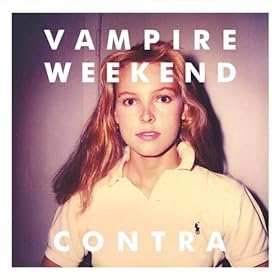
6. Halcyon Digest / Deerhunter
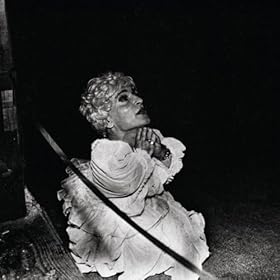
7. This Is Happening / LCD Soundsystem
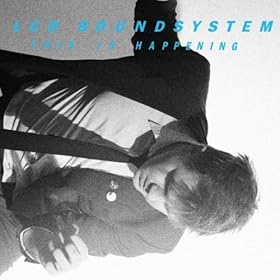
James Murphy has been building monuments of cool for the better part of a decade, and This Is Happening is his Parthenon. LCD Soundsystem's in-the-zeitgeist, post-dancerock, electronic metroplex is a masterpiece (and mashup) of club and indie music, a pulsing production parked in the middle of the urban universe. Witty, accessible, hip, and heady, This Is Happening reconstructs the notion of what it means to be a rock'n'roll god.
Murphy compresses post-punk, new wave, and club music into sprawling musical enterprises, and he rarely strays from stylish production and clever conceits, resulting in brainy climaxes throughout the entire record. For example, at the three-minute mark, opening track "Dance Yrself Clean" explodes into electro-funk euphoria, and other tracks contain similar moments of that-was-cool clarity.
"One Touch" is pulsating post-disco, "I Can Change" is groovy electro-pop, and "Home" is feel- good krautrock. "Pow Pow" is the album's cool epicenter, and, notably, there are few artists that could produce something so audacious, exciting, and catchy. On The D Man's favorite track, Murphy sings "You wanted a hit / but maybe we don't do hits." Ummmmm, right, have you been listening? If you heard this album for the first time while entering a record store, you would not make it out alive--like entering into the hippest wormhole in the time-space continuum, the vortex keeps spinning around until you succumb to the outer reaches of coolness. You wanted a hit? Baby, you just got something bigger.
8. Forget / Twin Shadow
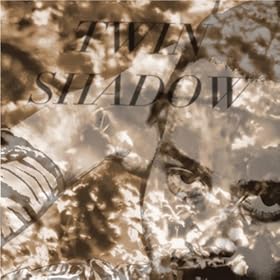
Forget combines the rich, dark, and lovelorn elements of 1980's pop music into a record that transcends genre. George Lewis, Jr. (aka Twin Shadow) skillfully uses tropes of the era--dramatic synthesizers, down-cast drum machines, somber guitar-lines--to give a meaningful and mysterious undercurrent to the romance and heartbreak of his music. The results are dazzling.
The sound of the album exists somewhere in the hazy space between dance and pop music; the soft glow of Chris Taylor's (Grizzly Bear) production casts an intimate shadow over the entire record, giving a late-night and alone-together quality to the music. Lyrically, the record conjures up visual nostalgia tailor-made for individual listeners; the excitement of new relationships, the heat of sexual drama, and the dissolution of love are exquisitely enveloped in a veil of intimacy. Atmosphere is everything.
If David Bowie had anything left in his creative tank after 1983's Let's Dance, he might have made an album that sounded like Forget. (Rather than the forgettable Tonight). With allusive nods to Morrissey, Depeche Mode, Echo & The Bunnymen, and even the general idea of what the 1980's were supposed to sound like, Twin Shadow has transformed revivalism and created something telling and timely.
9. Admiral Fell Promises / Sun Kil Moon

10. Plastic Beach / Gorillaz
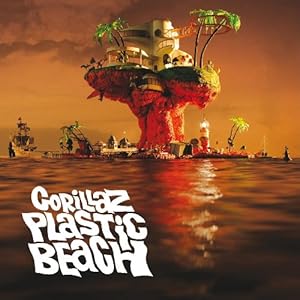
11. Gemini / Wild Nothing

12. Go / Jónsi
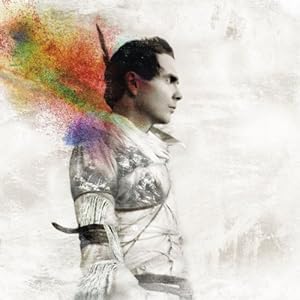
Jón (“Jónsi”) Pór Birgisson, the frontman for Sigur Rós, seems like he is from another planet. Given the sonic palette of his solo debut, it would be a lush, dreamy world of vegetation and color, prone to occassional fits of weeping rain. Like Pandora. Isn't he wearing feathers on the album's cover?
Go is a remarkable symph-pop record--inspiring, even--with beautiful flourishes of flutes, horns, percussions, and strings. Indeed, avant-garde indie-composer Nico Muhly's string arrangments are heavenly, while Samuli Kosminen's poly-rhythmic percussions help the music feel earthworn, elemental. "Go Do," as its title suggests, runs with wide-eyed, unbridled abandon ("We should always know that we can do anything"); "Animal Arithmetic" celebrates life's joyous cacophonies ("We should all be alive!); and "Boy Lillikoi" urges individual illumination ("We all grow old, use your life, the world goes and flutters by"). From other artists, these sentiments would sound trite; for Jónsi, they are empowered with wonder and innocence.
How is Go different from a Sigur Rós record? There seems to be a tighter pop-song focus--perhaps a natural extension from the first-half of 2008's splendid Með suð í eyrum við spilum endalaust--and the result is warmer, denser, more intimate than the ethereal, sometimes alien wonders of Sigur Rós. Jónsi also sings entirely in English, however, for most songs, it appears to make little difference, as his vocal intonations remain otherwordly.
Jónsi is now burdened with a stunning back catalog, and all of his efforts, solo or otherwise, may be unfairly weighed against his singular output. To be sure, had Go been our first listen to his distinctive world, it would have garnered more attention, and it would have been included in more discussions of the year's best albums. We simply take for granted beautiful things that we have seen or heard before. Regardless, there remains immense listening satisfaction from the record's sense of treasure, its sense of being untainted, unfound.
13. My Beautiful Dark Twisted Fantasy / Kanye West

Don't believe the hype. My Beautiful Dark Twisted Fantasy has bite, but it is not a better listen than Kanye's previous albums, particularly the multi-faceted flow of The College Dropout or the candy-gloss shine of Graduation. The album is strong, no doubt, but it is not once-in-a-generation material.
In a genre with few interesting moments this year (yes, that means you hip-hop, minus this song, of course), Kanye is hailed by critics as the latest and greatest hope, and this album is viewed as the most audacious rap record of the past several years. There is little doubt that Kanye is a better recordmaker than his peers, but The D Man is confused as to why this effort has garnered such over-the-top praise. We rave about his self-awareness, his honesty, his bravado, but with so few competitors, where exactly is the critical bar? Where does dirty self-congratulation end and true lyrical deftness begin? (Note to parents: The D Man highly recommends the edited version). Several of the tracks are massive and original, while others result in numbing fatigue, and the album's sum total is an erratic depiction of a talented but troubled soul.
So why the Top Twenty? Despite the above disclaimer, the record still has potent musical moments, and the artist's attempt at global pop domination is too convincing to overlook. Kanye culls inspiration from all of his previous material, and his hard-hitting and bombastic production (great samples and guest stars abound) give life to his innermost grievances, fantasies, and lyrical postulations. (Best line: "Too many Urkels on your team/ that's why your Winslow.") The songs are wide-ranging and, for good or ill, depict the many faces of Kanye: Kanye, the grand minister of inspiration ("Dark Fantasy"); Kanye, the dark-tribal overlord ("POWER"); Kanye, the pensive relationship-hero ("Runaway"); Kanye, the furious MC tag-teamer ("Monster"); Kanye, the major hit-maker ("All the Lights"); Kanye, the hedonistic apologist (multiple tracks). You get the idea; the man is so complex. But with so many different faces, one is left wondering: will the real Kanye please stand up?
14. Infinite Arms / Band of Horses
![Infinite Arms [+digital booklet]](http://ecx.images-amazon.com/images/I/51dp4x12AbL._SL500_AA280_.jpg)
We're Band of Horses. And we're from America. Three albums in, Band of Horses has established itself as a quintessential American band that successfully blurs the boundaries of indie-rock, folk, and country, and continually makes some of the best open-road music of the day. Infinite Arms is a comfortable collection of tunes, filled with sweet guitars, accessible hooks, and leisurely harmonies, and it feels about as well-worn as your old plaid button-up.
Taking off from previous releases, opening track "Factory" features a rising chorus backed by heavy-hearted strings, and the song successfully pulls off a "snack machine" reference. Second track "Compliments" is a zippy rocker, while third track "Laredo" is wide-open, American country-rock, easily the best driving song of the summer. From there, the album moves through Shins-like shuffles ("On My Way Back Home"), dreamy pysche-folk ("Infinite Arms"), poppy guitar-pop ("Dilly"), and back-porch reveries ("Evening Kitchen," "Older"). There is no rush, no hurry, especially when all the parts equal more than the sum, and the sum equals none . . . .
If Everything All the Time was their swirling reflection of the Northwest, and Cease to Begin their shimmering return to the South, then Infinite Arms is the band's meandering, shuffling trek West, with big skies, empty roads, and welcoming porches ahead. So keep on moving.
15. Astro Coast / Surfer Blood

Astro Coast packages power-riffs, power chords, and power choruses with meticulous guitar arrangements, creating a big-sounding surf-rock record. The spacey guitars and buoyant melodies are the show, and the show delivers hook after hook that would make classic indie bands blush. Surfer Blood was made for Rock Band.
"Swim (To Reach the End)" is swelling and anthemic, a song that would have been comfortable on MTV's 120 Minutes in the early 1990's. "Floating Vibes" is attention-grabbing, dueling guitar-pop, and "Harmonix" patiently builds, cresting at intervals, just like, you guessed it, waves of the ocean. But passing off Surfer Blood as merely an alt-rock revivalist with a penchant for water imagery (the name, the album cover, the song titles) discounts the promising guitar intricacy--and intuitive feel for a great hook--that imbues the band's entire debut record. After hearing Surfer Blood play live, there is little to doubt: crowdsurfing is encouraged.
16. Spoon / Transference
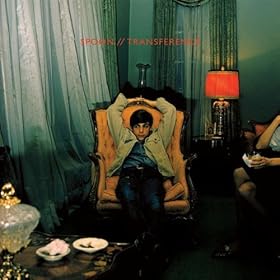
17. The Drums / The Drums

In a year of exquisite and nuanced 1980's revivalism, The Drums self-titled debut is straightforward, late-decade, Anglo guitar-pop that pleases at almost every turn. The Drums limited sonic vocabulary is effervescent (rather than an impediment), as the Brooklyn-via-Florida band understands their influences and wears them on their big-hearted sleeves.
Lead singer Jonathan Pierce prances, struts, and sings with an overwhelming sense of romance and a deep longing for connecting to his musical forerunners. His lyrical hooks are simple by design, and they are the perfect compliment to Jacob Graham's spindly guitar work. The tinny drums bely the album's solid production, but that may also be an intentional retro vibe in addition to the handclaps, reverb, keyboards, and harmonies that permeate the band's singular sound. A strong, imminently listenable debut.
18. Troubadours

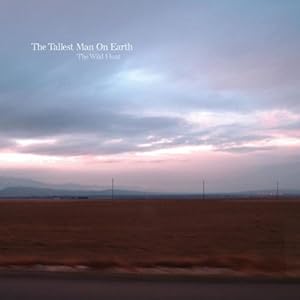
19. The Place We Ran From / Tired Pony

20. Treats / Sleigh Bells
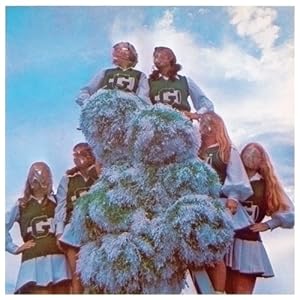
December 10, 2010
Ten Best Musical Moments of 2010

- 10. Enjoying Fallon's spot-on version of "Pants on the Ground" as Neil Young.
- 9. Listening to LCD Soundsystem's "Pow Pow" with Rizzo and Schwarzy on the Vegas Strip.
- 8. Hearing "M79," live, two times in the same year.
- 7. Watching Conan O'Brien play "Freebird" with Will Ferrell and company during his last Tonight Show.
- 6. Listening to Beach House's Teen Dream while driving on the Pacific Coast highway after a great day at Lego Land.
- 5. Hitting the high notes on "Is There A Ghost" during the Band of Horses show.
- 4. Listening to Declaration of Dependence at least thirty times all the way through. Listening to the same while bringing my third son home from the hospital.
- 3. Introducing High Violet to Viwe Xozwa, my (much darker) South African counterpart, during a beautiful autumn drive in the mountains.
- 2. Attending the Sufjan Stevens concert, and specifically, experiencing the 30-minute existential catharsis of "Impossible Soul."
- 1. Watching Mark Kozelek play in my brother's backyard, and listening to "Salvador Sanchez" under the late-summer night sky.
